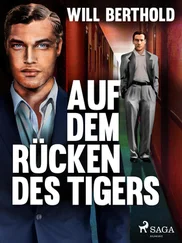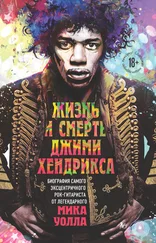Мик Херрон - Real Tigers
Здесь есть возможность читать онлайн «Мик Херрон - Real Tigers» весь текст электронной книги совершенно бесплатно (целиком полную версию без сокращений). В некоторых случаях можно слушать аудио, скачать через торрент в формате fb2 и присутствует краткое содержание. Год выпуска: 2015, Издательство: Soho Press, Жанр: Старинная литература, на английском языке. Описание произведения, (предисловие) а так же отзывы посетителей доступны на портале библиотеки ЛибКат.
- Название:Real Tigers
- Автор:
- Издательство:Soho Press
- Жанр:
- Год:2015
- ISBN:нет данных
- Рейтинг книги:4.5 / 5. Голосов: 2
-
Избранное:Добавить в избранное
- Отзывы:
-
Ваша оценка:
- 100
- 1
- 2
- 3
- 4
- 5
Real Tigers: краткое содержание, описание и аннотация
Предлагаем к чтению аннотацию, описание, краткое содержание или предисловие (зависит от того, что написал сам автор книги «Real Tigers»). Если вы не нашли необходимую информацию о книге — напишите в комментариях, мы постараемся отыскать её.
Real Tigers — читать онлайн бесплатно полную книгу (весь текст) целиком
Ниже представлен текст книги, разбитый по страницам. Система сохранения места последней прочитанной страницы, позволяет с удобством читать онлайн бесплатно книгу «Real Tigers», без необходимости каждый раз заново искать на чём Вы остановились. Поставьте закладку, и сможете в любой момент перейти на страницу, на которой закончили чтение.
Интервал:
Закладка:
“Well, we can hardly let you wander down to the kitchen at will. Security issues.”
“This is the weirdest kidnapping I’ve ever heard of,” she told him. “Not that I’m an expert. But seriously? Is this your first time?”
The soldier pursed a lip, as if giving it thought. “We’ve taken prisoners before. But the circumstances were different.”
“You’re not going to kill me, then.”
“We’re not animals.”
“Can I have that in writing?” She’d hoped for a chuckle, and when she didn’t get one asked, “Where’s Donovan?”
“Downstairs.”
No he wasn’t. He’d left earlier, in the van. But it didn’t hurt to pretend to believe him.
She said, “I could do with a change of clothing.”
“I said we weren’t animals. I didn’t say we were Marks and Spencer’s.”
He turned to leave, and Catherine reached for a hook to hold him. She found it just as he was closing the door.
“Does he talk about her much?”
“. . . About who?”
“The girl who died.”
He paused. Then said, “She wasn’t a girl . She was a captain in the armed forces.”
“My apologies. But she’s still dead, right? Does he talk about her at all? I’m sure I would.”
Catherine could hear her own voice rising as she spoke—she rarely lost control of her tone, but she was desperate for him to stay, say more, cast light on why she was here, and what was happening elsewhere.
“If I’d been drunk-driving the car that killed her, I mean,” she finished.
He shook his head, sadly it seemed to her, and left the room, padlocking the door behind him.
After a while, Catherine reached for the tea.
Nick Duffysplashed water onto his face, then gazed hard into the bathroom mirror, finding nothing out of the ordinary there. A morning’s work. They weren’t all like this—well, they couldn’t be. It wasn’t a police state.
After he’d dried himself on a paper towel, he checked on Cartwright through the two-way. He’d have expected the kid—not entirely a kid, but Duffy felt entitled—to have parked himself on the chair, which Duffy had left for that specific purpose, to make taking it away from him the next gambit. Cartwright, though, had remained upright. He was leaning against the wall, and if he didn’t look happy—looked pale as a fish with stomach pains—he hadn’t, Duffy noted, positioned himself out of view of the mirror. In fact, he raised a middle finger towards it at that moment, as if he knew Duffy was watching.
Could have been a lucky guess.
He moved away and released the phone from its hook on the wall. A three-digit extension got him Diana Taverner.
“He’s not changing his story.”
“Remind me what his story was.”
Duffy ran through it: the photograph of Standish, the brief instruction. The man on the bridge who’d worn a suit and had a toff’s accent.
“Sounded like he got up Cartwright’s nose.”
“You believe him then?” Taverner asked.
Duffy looked at his free hand. Nothing about it suggested he’d done anything rougher that morning than carrying a hot coffee.
“I think he’d have changed his story if it wasn’t true,” he said.
He was used to Lady Di’s silences, which generally meant she was assimilating information, dividing it into pros and cons. This one, though, felt different, as if she already had a handle on what was going on.
In the room next door, Cartwright made the middle-finger gesture again. He was on a loop, Duffy decided. A cycle of defiance, because despite all that had happened to him in the past twenty minutes, he hadn’t yet grasped the nature or the depth of the shit into which he’d stepped.
Taverner said, “Have you sent anyone looking for this man? The one on the bridge?”
“There was a man, in London, on a bridge, two hours ago,” Duffy said. “We could cordon the city off, I suppose.”
“Talk to me like that again,” Taverner said, without altering her tone, “and you’d happily swap places with Cartwright. What about the woman—Standish?”
“The photo’s on his phone. Like he said.”
“And it came from where?”
“Her phone.”
“Of course it did . . . Any trace?”
“Not that I’ve heard.”
“How badly have you hurt him?”
“Hardly at all.”
“By your standards, or anyone’s?”
“He might be a slow horse, but he’s not a civilian. He’ll live.”
“Just as well. Lamb can get . . . tetchy when his crew get damaged.”
“I thought he despised his crew.”
“That doesn’t mean he likes other people messing with them. Okay, let Cartwright sweat for the moment. We’ll get word from on high sooner or later.”
“On high?”
“Oh yes. Dame Ingrid’s been summoned to the Home Office And you know how jolly that makes her.”
Cartwright was doing the thing with the finger again. He couldn’t know Duffy was there, obviously, but it was still starting to get on his wick.
He said, “Look. That crack about cordoning off the city. I—”
“You’d just finished putting the leather to someone. It made you feel cocky. Made you feel invulnerable.”
“I guess . . . ”
“Trust me. You’re not.”
Taverner hung up.
Duffy replaced the receiver and stood by the two-way a while longer. Every so often, River Cartwright repeated the finger gesture, but to Duffy’s eye, it looked a little less convincing each time. What was it they used knackered horses for again?—oh yeah: dog food and glue. Give it a while, he’d pop next door and remind Cartwright of that. Meanwhile, he deserved a cup of coffee.
He left the room quietly so the kid wouldn’t hear. The thought of him standing there, repeatedly offering the finger to an empty room, wasn’t quite enough to wipe away the memory of Lady Di’s parting shot, but it didn’t hurt.
T here were many thornsin Ingrid Tearney’s garden—the constant need for vigilance; the ever-present threat of terrorism; Diana Taverner—and here was another: a summons from the Home Secretary. Until recently, such phone calls had been a minor nuisance, requiring her to attend the minister’s office and deliver platitudes while maintaining eye contact, as if soothing a worried puppy. But Peter Judd didn’t look to her for reassurance, he sized her up for weaknesses. In company he claimed they got on like a house on fire, but it was clear which of them provided the petrol.
It was Dame Ingrid’s habit to catch the tube into work, but she used her official ride for everything else. It took her now through streets that were wilting in the heat. When the freak weather had started it had splashed the capital in colour, but as hot days turned into baking weeks, brightness had faded like old paint. Greenery died, turning parks brown and lifeless. People scurried now from shadow to shadow, wearing the caved-in expressions of trauma survivors, and greeted rumours of rain like news of a lottery win. That the weather was not normal was a staple of internet traffic. The streets, meanwhile, were cruel reflections of an unforgiving sky, where everything dazzled and everything hurt.
But inside the car frosted air circulated, and to all outward appearance Ingrid Tearney was unruffled by heatwave or grim thoughts. Her summer outfit was new, the fruit of a recent upturn in her finances, and her mannish features were relaxed into a benevolent-seeming mask. She looked like the friendly grandmother, the one who offers oranges, but behind that mask steam valves hissed. Judd’s telephone summons had come from the man himself instead of the usual lackey, but he’d given no clue as to what it was about. His tone, though, had reeked of triumph. Whatever game he was about to play, he’d been dealt a useful hand.
Читать дальшеИнтервал:
Закладка:
Похожие книги на «Real Tigers»
Представляем Вашему вниманию похожие книги на «Real Tigers» списком для выбора. Мы отобрали схожую по названию и смыслу литературу в надежде предоставить читателям больше вариантов отыскать новые, интересные, ещё непрочитанные произведения.
Обсуждение, отзывы о книге «Real Tigers» и просто собственные мнения читателей. Оставьте ваши комментарии, напишите, что Вы думаете о произведении, его смысле или главных героях. Укажите что конкретно понравилось, а что нет, и почему Вы так считаете.


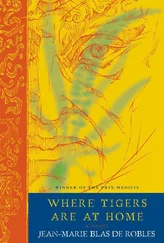

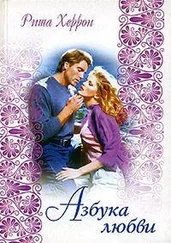
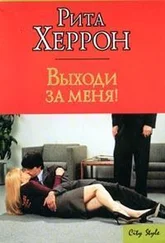
![Мик Уолл - Жизнь и смерть Джими Хендрикса [Биография самого эксцентричного рок-гитариста от легендарного Мика Уолла] [litres]](/books/387909/mik-uoll-zhizn-i-smert-dzhimi-hendriksa-biografiya-samogo-ekscentrichnogo-rok-gitarista-ot-legendarnogo-mika-uolla-litres-thumb.webp)


